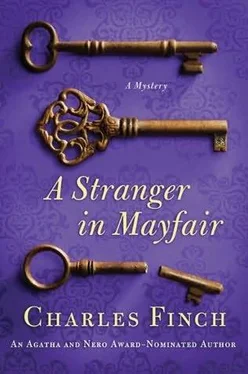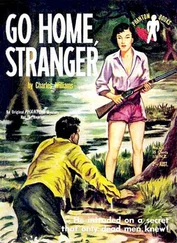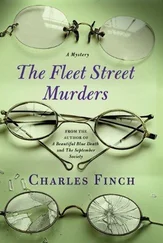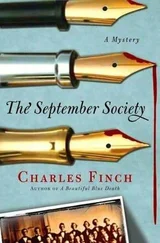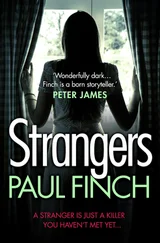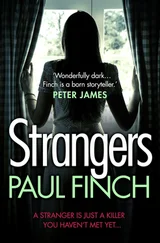Charles Finch - A Stranger in Mayfair
Здесь есть возможность читать онлайн «Charles Finch - A Stranger in Mayfair» весь текст электронной книги совершенно бесплатно (целиком полную версию без сокращений). В некоторых случаях можно слушать аудио, скачать через торрент в формате fb2 и присутствует краткое содержание. Жанр: Исторический детектив, на английском языке. Описание произведения, (предисловие) а так же отзывы посетителей доступны на портале библиотеки ЛибКат.
- Название:A Stranger in Mayfair
- Автор:
- Жанр:
- Год:неизвестен
- ISBN:нет данных
- Рейтинг книги:3 / 5. Голосов: 1
-
Избранное:Добавить в избранное
- Отзывы:
-
Ваша оценка:
- 60
- 1
- 2
- 3
- 4
- 5
A Stranger in Mayfair: краткое содержание, описание и аннотация
Предлагаем к чтению аннотацию, описание, краткое содержание или предисловие (зависит от того, что написал сам автор книги «A Stranger in Mayfair»). Если вы не нашли необходимую информацию о книге — напишите в комментариях, мы постараемся отыскать её.
A Stranger in Mayfair — читать онлайн бесплатно полную книгу (весь текст) целиком
Ниже представлен текст книги, разбитый по страницам. Система сохранения места последней прочитанной страницы, позволяет с удобством читать онлайн бесплатно книгу «A Stranger in Mayfair», без необходимости каждый раз заново искать на чём Вы остановились. Поставьте закладку, и сможете в любой момент перейти на страницу, на которой закончили чтение.
Интервал:
Закладка:
It had only recently become widely acknowledged that it was a waterborne plague, and the so-called Great Stink of several years ago had galvanized into action the politicians and municipal leaders of London. Joseph Bazalgette, a well-respected engineer working with the Metropolitan Commission for Sewers and its successor, the Board of Works, had designed a new sewage system for London that would make the water of the Thames safe to drink again, and after his plan had been published and executed a couple of years before, towns and cities across the country had begun to copy it. The reformers had won.
But there was a problem. Most of London was connected to the new sewage system, but the part of the city that had suffered the most deaths, East London, where the poorest people lived-it had not. This fact, with its implications, was what had so shocked Lenox. He had assumed before then, not paying very great attention to the matter, that all was solved. It wasn’t. In fact a fresh epidemic was just beginning to show signs of emerging in East London. One of the primary causes of cholera-overfull cemeteries-was still prevalent there, and the water supply was horribly compromised.
Lenox explained all this to Hilary. “It’s all right for the nibs, living around here, and for the middle class, but these people, James! You wouldn’t believe the statistics! Italy has lost a hundred thousand people this year, maybe more. Russia the same. Everywhere in Europe. People couldn’t abide the smell-the smell!-and so we have a new sewage system, but there’s no interest in the death of people in our own city! It’s the most shocking thing I’ve heard since I was elected!”
Hilary shifted uncomfortably in his high-backed wooden chair. “It’s grave indeed, Charles, but I’m afraid we have more pressing concerns at the moment. This reform bill, for one, and of course the colonies-”
Lenox interrupted him. “Surely we have time to handle all of these things at once. As a start we should buy some of these private water companies, which care for nothing but profit, and turn them into municipal concerns.”
“That would require a great deal of money.”
“These are precisely the people we’re supposed to represent. What if this were happening in a small town? Would we help them?” He threw up his hands in disgust. “Any evil can go hiding in London. It’s always been the way, hasn’t it?”
“Charles, you’re new to Parliament. You must understand that we hold human life in the balance every day, and make judgments about how to help people based on our best sense. It’s not pleasant, but it’s our work. When you’ve been in Parliament a year you’ll comprehend-”
“I’ll deliver a speech. I don’t care who listens to it-I don’t especially care who wants to help me, Conservative or our side.”
“A speech!” said Hilary with amused incredulity. “I should think it would be some months before you deliver a speech.”
Lenox realized that he was in the reverse of his usual position: He was the petitioner, like so many grieving people who had come to solicit his services with varying success. It was a helpless, unpleasant feeling.
He decided to try a different tack. “I know I must seem callow to you, Hilary, but you’ve known me for many years. I’m not a hasty-minded person. I’ve read dozens of blue books, and of them all this was the one that affected me. Will you read it? Will you speak to people?”
Lenox was holding the book halfway out, and Hilary took it gingerly. “I’ll read it.”
Lenox stood up. “Thank you. Meanwhile I’ll speak to a few of the Members I know. This is a worthy cause, you’ll see.”
“Well-I’m quite sure. But Charles, don’t speak to too many people-let this move slowly.”
The detective nodded, though he had no intention of adhering to the advice. He ran out of the Athenaeum with a dozen ideas swirling through his mind-to talk to this person, to write that one, to ask that gentleman to dinner and another gentleman’s wife who could speak to Jane. Underlying these plans was the thrilling notion, barely formed in all the hustle of the last hour, that he had found the purpose and motivation in his new career that had seemed so elusive only the day before.
Chapter Twenty
Though he now had a dozen things to do, he decided it was important to stop in for a visit at the McConnells’.
Jane was still spending nearly all of her time there. He didn’t wonder at her devotion-he knew better perhaps than anyone else in the world the strength of her friendship-but did ask himself whether it took a toll on her. She would be happy for Toto, that was a given. But would she be sorry for herself?
She had been a very young widow. It was the one subject they never discussed, the sudden death of her first husband just a year into their marriage. Lenox tried to think back to Jane as she was then, at a time when he could be friendly but dispassionate in his analysis of her character. He remembered that she had been a very happy bride, and a very brave widow. What had she planned for herself, in the idle moments during the weeks before that first wedding? How many children? What names had she bestowed upon them?
It made his chest feel hollow, his lower stomach roiled. It was awful.
Still, he managed to put on a cheerful face for Thomas and spent half an hour closeted with him, drinking a dram of whisky with the new father, who paced back and forth, an unshakable grin upon his face. It was the happiest, quite literally the happiest, that Lenox had ever seen him.
Jane came downstairs, brushed a kiss on his cheek, said a few quick words-amiable enough, loving enough-and went back to be with Toto, who was apparently still rather weak.
“Another sip of Scotch?” asked McConnell when she had gone.
“Thanks, yes.”
McConnell poured two from his sideboard and handed one to Lenox. “To George!”
“With all my heart.”
They drank. “I think all my toasts from now on will be to her,” said McConnell thoughtfully, looking out of his window at the soft pink and white fall of evening, buildings half lit, homeward-headed people scattered over the cool streets. “Whether we toast the Queen or a newly married couple, in my own mind I’ll know who my toast is really for. Little George McConnell.”
Lenox smiled. “What’s it like?” he asked quietly.
“What is it like? It’s…it’s like being given your own life to start over. I don’t think I’ve ever thought for a moment about what I ate or what I drank or whether I hit my head. I don’t think I ever thought for a moment about my education, not really.”
“Oh?” Lenox felt slightly crestfallen-not envious, but sad that the brilliant, shimmering happiness of McConnell’s face would never show on his own.
“Other parents said I would care more about her than myself, and I see now that’s what they meant. All of the choices that are quick and painless for my own old bones seem so important when they’re for her. Where will she go to school, I wonder?” In a private reverie he fingered a book on the shelf next to him. “What will she learn there?” He looked at Lenox. “It’s the most wonderful thing you can imagine.”
“Is Toto holding up well?” asked Lenox after a silent moment.
“Oh, she’s making jokes again. And between us all is well.” This was an unusually intimate thing for the doctor to say, and perhaps he realized it, but, caught up in his own exhilaration, he went on. “When one is unhappy and trying to hide it-when one has a secret trouble-there’s an antic cast to everything in life. Now things are serene again.”
“It’s very finely put,” murmured Lenox.
Then a thought occurred to him. It was that turn of phrase: “an antic cast.” It put him in mind of someone.
Читать дальшеИнтервал:
Закладка:
Похожие книги на «A Stranger in Mayfair»
Представляем Вашему вниманию похожие книги на «A Stranger in Mayfair» списком для выбора. Мы отобрали схожую по названию и смыслу литературу в надежде предоставить читателям больше вариантов отыскать новые, интересные, ещё непрочитанные произведения.
Обсуждение, отзывы о книге «A Stranger in Mayfair» и просто собственные мнения читателей. Оставьте ваши комментарии, напишите, что Вы думаете о произведении, его смысле или главных героях. Укажите что конкретно понравилось, а что нет, и почему Вы так считаете.
